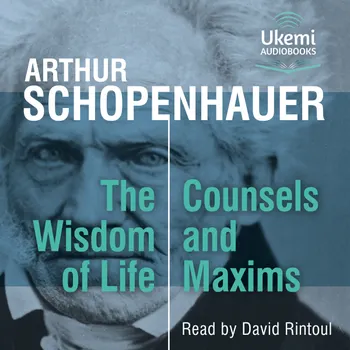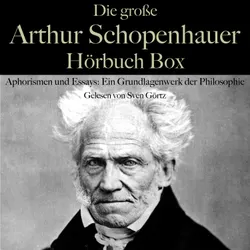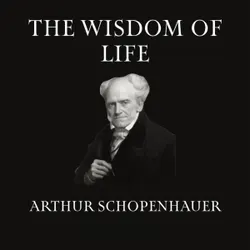'The two foes of human happiness are pain and boredom.'
Arthur Schopenhauer (1788-1860) was one of the most influential philosophers of the 19th century because his humanistic, atheistic, if pessimistic views chimed with a new secularism that was emerging from a Western society dominated by religion. Despite his rather forbidding image (and a few outdated views), he is one of the most approachable German philosophers, and this is certainly evident in these two key works, The Wisdom of Life and Counsels and Maxims.
This is, says his translator, T. Bailey Saunders, because his theories were based on observation and experience - 'interpreting the world as it is'. In The Wisdom of Life, Schopenhauer considers eudemonology (the science of happiness) - 'the art of ordering our lives so as to obtain the greatest possible amount of pleasure and success'.
He begins by dividing 'differences in the human lot' into three: what a man is in the sense of personality; what a man has in terms of property and possessions; and how a man stands in terms of the estimation of others. In the course of the book, he expands on these divisions.
In Counsels and Maxims, he develops the theme of eudemonology by advising that it is best to replace the pursuit of pleasure and happiness with a more measured approach based on the avoidance of pain and suffering. However, his views are not as negative and pessimistic as this may seem, not least because he was the first major Western philosopher to be influenced by Eastern thought, notably Buddhism, which he acknowledges.
In his exposition, Schopenhauer draws on numerous sources as varied as Plato and Horace, Goethe, Shakespeare, Silesius and, of course, his own major work The World as Will and Representation (1818). Both The Wisdom of Life and Counsels and Maxims first appeared (under the collective heading of Aphorisms on the Wisdom of Life) in his collection of writings Parerga and Paralipomena (1851).
Schopenhauer proved a major influence on numerous key figures, from Nietzsche, Schrödinger and Freud to Tolstoy, Wagner, Einstein, Thomas Mann and Samuel Beckett. Translation by T. Bailey Saunders (revised).












